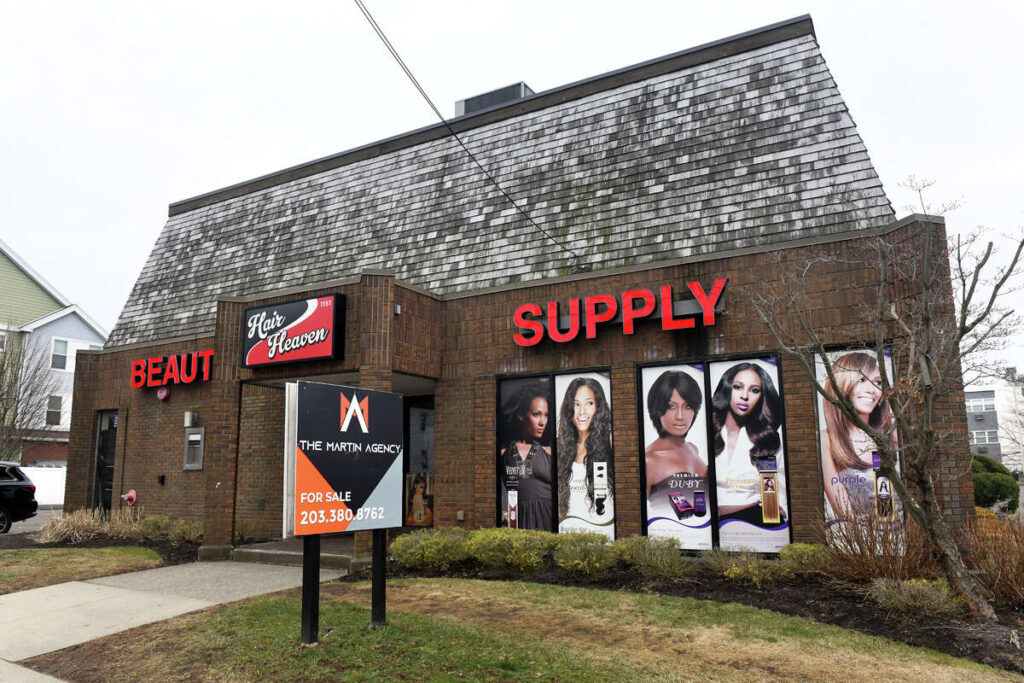STRATFORD — The public will have one more chance to weigh in on plans to open the town’s first hybrid dispensary to sell recreational and medical marijuana.
The Stratford Zoning Commission will once again listen to opponents and supporters of the proposed store during a meeting at 7 p.m. on Wednesday, March 22. The public hearing, which began last month, was continued after several residents called on the panel to vote down the facility.
Verano, a Chicago-based company that operates more than 100 dispensaries across the country, is proposing to convert an old bank at 1151 Stratford Ave. into an adult-use cannabis retailer.
The company is the first to apply for a chance to open a hybrid cannabis store in Stratford since state lawmakers legalized recreational marijuana in 2021. The first adult-use retail sales began earlier this year and have generated more than $12 million in sales, according to the Department of Consumer Protection.
But the store has sparked concern from some residents who told the commission last month that they believe the store could encourage an increase in vehicle traffic near the South End site and harm the quality of life for residents in the surrounding neighborhood.
“I have an issue with the location,” Marvelle Jones, a longtime Taft Street resident, told the commission. “It is in the proximity of five apartment buildings with a multitude of families and children. There are children walking home from school, there are families there. I think it’s a poor idea.”
Anthony Marsico, an executive vice president for Verano, however, has said a study has determined the traffic levels would not be materially different from when the building housed a bank and a drive-up ATM. The store, which is served by an existing 39-space parking lot, could generate up to 125 vehicular trips during peak hours.
He has also sought to ease concerns about the store itself. During a presentation to the commission, he said consumption of cannabis is not allowed on site, stressed that minors are not permitted in the building and pointed to a security system that would include a product vault and extensive surveillance.
“Virtually no square inch of our facility is not covered by cameras, with the exception of the restrooms,” he said. “Both the interior and exterior of our building are camera monitored”
Marsico has said the dispensary would be co-owned by a social equity application who has a 50 percent stake in the business. Half of the state’s cannabis licenses have been reserved for social equity applicants who meet income, residency, and ownership requirements.
The arrangement, known as an equity joint venture, allows companies to bypass the lottery for obtaining a license, but requires them to seek approval from the state’s Social Equity Council. The program was created to encourage participation in the cannabis industry by people who live in communities disproportionately harmed by laws criminalizing marijuana.
Marsico told the commission the dispensary is also open to hiring individuals with criminal histories as long as they have not been convicted of retail theft and can pass a state background check. He said the store will likely employ between 30 and 40 full and part-time workers.
“It is unquestionable that the War on Drugs has disproportionately affected minorities in specific neighborhoods and we do our part,” Marsico said. “We have people, I can assure you, from all walks of life.”
Commission members did not voice any major concerns about the proposed store at last month’s meeting, but it is not yet clear if a majority of the five-member board will approve the facility.
After briefly considering a moratorium on adult-use cannabis stores, the commission voted last year to permit the industry in part due to the tax revenue and economic boost the facilities are expected to generate. The commission, however, has restricted the total number of recreational pot retailers to just two stores.
H/T: www.ctpost.com



